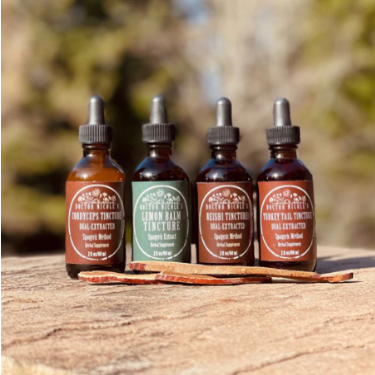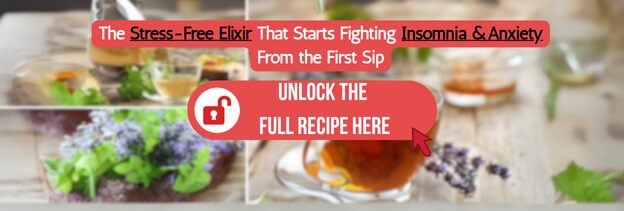What if your body suddenly betrayed you with a raging migraine, a blood sugar crash, or a night you just can’t sleep? When medical help isn’t right around the corner, knowing how to take control can mean the difference between panic and peace of mind. This isn’t about waiting for symptoms to get worse or relying solely on prescriptions. It’s about arming yourself with powerful herbs, simple habits, and easy home remedies that fight back when your health goes sideways.
Ready to learn how to handle 10 of the most common medical emergencies at home without losing your cool?
Supporting Blood Sugar Balance Naturally
Type 2 diabetes management can often be supported through a combination of a balanced diet, regular exercise, and certain herbal supplements. It’s very important to always consult your healthcare provider before making any changes to your medication or treatment plan, as individual needs and responses can vary widely.
If you’re interested in exploring ways to support your blood sugar levels, whether to complement your current treatment or in situations where medication access is limited, adopting a low-carbohydrate (ketogenic) diet alongside specific herbs may help promote more stable blood glucose levels. These approaches usually take some time (potentially several weeks) to show full effects, although some improvements may begin sooner.
For managing elevated blood sugar levels, regular physical activity combined with a low-carb diet can be beneficial. Certain herbs are traditionally known to support insulin function and help regulate blood sugar, including bitter gourd, fenugreek seeds, Indian gooseberry (Amla), curry leaves, aloe vera gel, gymnema sylvestre, rosemary, oregano, sage, garlic, and ginger.
If blood sugar drops too low, consuming a small amount of juice or fruit can help raise it quickly. In such cases, regularly using herbs that help stabilize blood sugar—such as cinnamon, holy basil, aloe vera gel, cloves, rosemary, oregano, sage, garlic, ginger, turmeric, cayenne, ginseng, and ashwagandha—may provide additional support. Monitoring your blood sugar closely is essential to ensure safety.
For ongoing support, incorporating these herbs consistently into your meals and teas can add flavor and may contribute to maintaining healthier blood sugar levels over time.
If you’re working to keep your blood sugar in check, while also juggling stress, low energy, or trouble sleeping, it’s easy to feel like you’re constantly falling behind. Before you know it, you’re juggling ten different bottles, second-guessing what’s actually helping, and wondering if any of it is worth the effort. Instead of trying to manage everything with separate remedies, I use this powerful bundle that brings together four herbal allies that support both blood sugar and overall wellness. I found everything a lot easier once I came across it.
Here’s what’s inside:
Cordyceps Mushroom Tincture – Supports energy levels, brain function, and lung health. A valuable ally for both chronic and acute issues, especially when your body feels run down.
Reishi Mushroom – A calming adaptogen that helps the body cope with stress, supports deeper sleep, and encourages stronger immune function.
Turkey Tail Mushroom – One of Nicole’s go-to tinctures for reducing inflammation, supporting gut and heart health, and promoting more balanced blood sugar.
Lemon Balm – A natural mood booster that helps ease anxiety, sharpen focus, and support cognitive health, especially helpful when stress and brain fog creep in.
Each tincture is dual-extracted from fruiting bodies for full potency. No fillers, no shortcuts. If you’re looking for a more natural, well-rounded way to support your blood sugar and feel better day to day, this bundle is a great place to start.
Natural Support for Prostate Health
Common symptoms associated with an enlarged prostate due to benign prostatic hyperplasia (BPH) may include frequent urination—especially at night—difficulty emptying the bladder, urinary leakage, and a higher risk of urinary tract infections.
Many men find that a combination of certain herbs, vitamins, and minerals can support prostate health and help alleviate some of these symptoms. Some of the herbs most often used include: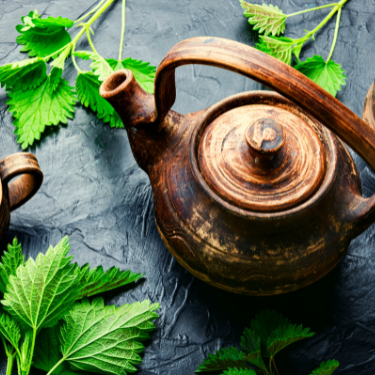
- Saw Palmetto: Contains beta-sitosterol and plant sterols that may help reduce BPH-related symptoms.
- Pygeum Bark: Traditionally used to support bladder emptying and improve urine flow.
- Stinging Nettle: Often included for its potential anti-inflammatory properties.
- Garlic, Echinacea, and Goldenseal: These herbs are believed to help reduce inflammation associated with BPH.
- Quercetin: A flavonoid found naturally in many fruits and vegetables, quercetin may help inhibit the growth of prostate cancer cells and reduce symptoms linked to prostate infections. It is also available as a supplement.
- Cranberries or cranberry juice: Known for their role in supporting urinary tract health and potentially reducing the risk of infections related to BPH.
In addition, ensuring adequate intake of zinc, vitamin B6, and vitamin D3 can contribute to overall prostate health.
As with any health concerns, it’s important to consult with your healthcare provider before beginning new supplements or making significant changes to your health routine.
Natural Approaches to Managing Migraines
Migraines can be intense and sometimes strike without warning. While many natural remedies have helped people find relief, it’s important to remember that what works varies from person to person. If you experience migraines, your best first step is often to focus on prevention.
Keeping a food diary can help identify any potential trigger foods. Adding leafy green vegetables to your diet may also support overall wellness. Some migraine sufferers find that starting the day with a green smoothie helps reduce the frequency of their migraines.
Herbal Remedies That May Help with Migraine Relief
Basil: Known for its analgesic, antispasmodic, and muscle-relaxing properties, basil may ease headaches caused by tension and muscle tightness. It can also help reduce nausea associated with migraines. Try drinking basil tea by steeping fresh leaves in hot water for 5 to 10 minutes, chewing fresh leaves, or gently massaging basil essential oil onto your forehead and temples at the onset of symptoms.
Sweet Bay (Laurus nobilis): Contains natural anti-inflammatory compounds that might help relieve migraine pain. Sweet bay leaves can be used in tea, added to baths, or the essential oil applied topically to the forehead.
Butterbur (Petasites hybridus): This herb has anti-inflammatory effects and may help relax blood vessels to support healthy blood flow to the brain. Butterbur extract is commonly available in capsule form. (Note: Choose products that are labeled free of harmful alkaloids.)
Chamomile (Chamaemelum nobile): Acts as a mild sedative and anti-inflammatory, potentially reducing muscle spasms and tension that contribute to migraines. Chamomile can be enjoyed as a tea or applied as a compress with a few drops of essential oil.
Feverfew (Tanacetum parthenium): Also known as wild chamomile, feverfew has analgesic and anti-inflammatory properties with mild sedative effects. It is available as a tea, tincture, or capsules.
Lavender: Widely used for headache relief, lavender essential oil may help ease migraine symptoms when diluted and rubbed on the temples or simply inhaled.
Mint (Mentha piperita): Peppermint tea is soothing, and applying a cold compress with diluted peppermint oil to the forehead may provide relief as well.
Rosemary (Rosmarinus officinalis): Known to warm the body and ease tension, rosemary essential oil can be applied to the temples and neck or added to a warm bath for stress reduction.
Managing Insomnia
Insomnia is quite common, especially in times of crisis. But when insomnia goes on, night after night, it can become a medical emergency. If you are having trouble falling asleep, try this mix of lifestyle and herbal remedies.
- Turn off the TV and other light emitting devices at night and listen to soothing music. Set your music to automatically turn off and relax.
- Practice 15 minutes of gentle stretching exercises before bed. Stretching or gentle yoga exercises will loosen your muscles and prepare you for sleep.
- Go to bed and get up at the same time each day. Regular sleep habits will help train your body.
- Drink tart cherry juice before bed. Cherry juice is naturally high in melatonin, which helps regulate your bodies sleep cycles.
- Chamomile is a sedative herb which is considered safe for children and adults. Use chamomile oil in the bathwater or drink it as a tea.
- Lavender has long been used under the pillow to promote sleep, but it can also be used as a tea, or put a few drops of lavender essential oil in a diffuser in the bedroom.
- Passion Flower (Passiflora incarnata) is useful for insomnia caused by stress, worry, or nervous exhaustion. It is a natural sedative, safe for minor sleep problems in children and adults. Take as a tea or tincture.
- Valerian (Valeriana Officinalis) is recommended extensively for insomnia and restlessness. It has a sedative action and helps the user fall asleep and sleep longer. Take valerian as a tea or tincture.
- Wild Lettuce (Lactuca Virosa) has mild sedative properties, helpful in treating insomnia. It is safe for use in children. Use wild lettuce as a tincture.
- California Poppy (Eschscholzia Californica) is a mild sedative that relieves pain and promotes sleep. It is widely used in insomnia formulas to help you relax and reduce anxiety. Take California poppy as a tea or a tincture.
The Stress-Free Elixir That Starts Fighting Insomnia & Anxiety From the First Sip
Natural Options for Pain Relief
When it comes to managing pain, different remedies may be more effective depending on the type and source of discomfort. Here are some of the top herbs commonly used to support natural pain relief:
Anti-Inflammatory Herbs
These herbs are often used to help reduce pain caused by inflammation in muscles, joints, or tendons. This can include conditions such as arthritis, fibromyalgia, nerve pain, and back pain. Some well-regarded options include:
- Ginger
- Turmeric
- Curry
- Boswellia
- Capsaicin (found in peppers and applied topically to relieve localized pain)
- Clove oil (used topically, particularly effective for toothaches)
- Bromelain
- Devil’s Claw
When inflammation is at the root of your pain, finding real relief often means going deeper than over-the-counter pills. The herbs you see above have been trusted for centuries to soothe the body naturally. But consistency is key, and managing multiple herbs every day can get overwhelming fast.
If your gut isn’t functioning well, it doesn’t just affect digestion. It can weaken your immune system, increase inflammation, trigger seasonal allergies, and even make the joint pain worse. And while most people try to treat these symptoms separately, the truth is, they’re often connected.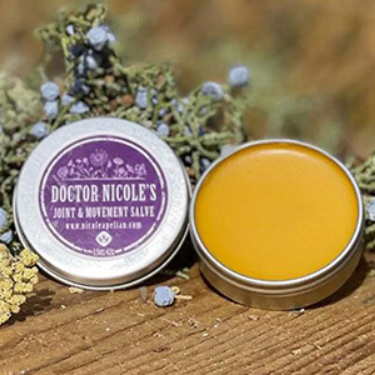
This Joint & Movement Support Bundle offers a more focused approach. It brings together five of the most effective plant-based remedies for addressing pain, stiffness, and inflammation, without all the side effects that often come with conventional options:
- Balanced Gut Blend Tincture – Formulated with soothing, anti-inflammatory herbs to support the intestinal lining and encourage healthier digestion from the inside out.
- Stinging Nettle Tincture – A trusted remedy for easing allergy symptoms and systemic inflammation. Also supports more stable blood sugar and nutrient absorption.
- Reishi Mushroom Tincture – A powerful adaptogen that helps reduce the effects of chronic stress while supporting restful sleep and stronger immune defenses.
- Turkey Tail Mushroom Tincture – Known for its gut-healing and immune-boosting properties. Also supports heart health and helps modulate inflammation.
- Joint & Movement Salve – A fast-absorbing, deeply effective herbal salve that targets joint pain, stiffness, and muscle soreness—ideal for everyday use.
Each remedy in this bundle is made from the highest-quality botanicals, with no fillers or shortcuts. The tinctures are dual-extracted for maximum potency, and the salve is crafted from time-tested herbs known for their ability to bring lasting relief. If you’re ready to support your gut, immune system, and joints in one simple routine, this is where you should begin.
Willow Bark
Willow bark is a natural anti-inflammatory herb often used as a general pain reliever. It may help with headaches, muscle aches, back pain, arthritis, and other pain related to inflammation or infection. Willow bark contains compounds similar to aspirin, so it should be used with care and professional guidance.
Turmeric
Turmeric is known for its ability to ease pain and inflammation and may be beneficial for stomach discomfort, indigestion, ulcers, certain types of cancer pain, and some skin conditions.
Wild Lettuce (Lactuca sativa)
Sometimes called “lettuce opium,” wild lettuce has mild sedative and pain-relieving properties. It may be used both topically and orally as a natural alternative for managing pain and can act as a gentle sedative.
Natural Approaches to Supporting Healthy Cholesterol Levels
High cholesterol is often linked to inflammation and an increased risk of heart disease. Maintaining cholesterol within a healthy range is important for overall cardiovascular health.
Many of the herbs used to support blood sugar balance may also help reduce inflammation and support healthy cholesterol levels. In addition, the following herbs have shown promise in promoting heart health and managing cholesterol:
- Astragalus
- Hawthorn
- Flaxseed
- Garlic
Incorporating these herbs alongside a balanced diet and healthy lifestyle can be a supportive part of cholesterol management.
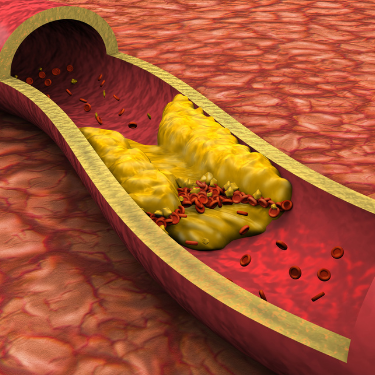
As always, it’s important to discuss any new treatments with your healthcare provider, especially if you are on medication or have existing health conditions.
High cholesterol isn’t just a number, it’s a sign that inflammation might be quietly putting extra strain on your heart. Tackling it means more than just watching what you eat; it calls for a full-circle approach that supports your body’s natural balance and resilience.
Reishi mushroom has been called the “Mushroom of Immortality” for good reason. This powerful adaptogen doesn’t just help manage inflammation: it supports your immune system, calms daily stress, and promotes deep, restorative sleep. All of these play a vital role in keeping your heart and cholesterol in check. However, it is notoriously difficult to grow at home or forage in the wild.
Because of that, getting authentic, potent Reishi can be a real challenge. That means most people never get to experience its full potential, unless they find a trusted source.
With Nicole’s Reishi Mushroom Tincture, you get a potent, easy way to tap into this rare mushroom’s full power. It’s crafted to help you reduce inflammation, support your immune system, calm daily stress, and improve sleep, all crucial for protecting your heart and balancing cholesterol naturally. If you’re ready to give your body the natural support it deserves, add it to your daily routine.
Constipation Relief
Constipation can become uncomfortable and even serious if it persists over time. When it becomes chronic or severe, it’s important to address it promptly and seek medical advice if needed.
Natural laxatives typically work by drawing fluid into the intestines and stimulating muscle contractions to encourage bowel movements.
The first step is to increase dietary fiber gradually by including more fruits, vegetables, legumes, nuts, and seeds. It’s important to introduce fiber slowly, as too much at once can sometimes cause gastrointestinal discomfort.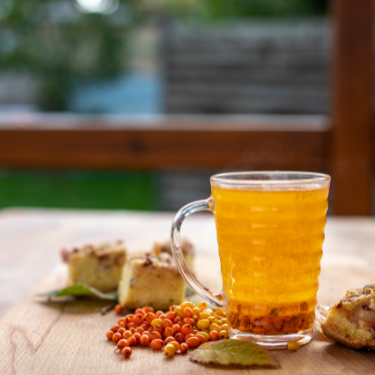
If dietary changes aren’t enough, certain herbs may help relieve more persistent constipation:
- Buckthorn (Cascara sagrada): An effective natural laxative, but it may cause abdominal cramping. It’s best reserved for occasional use in more severe cases and should not be used long term.
- Psyllium: A soluble fiber derived from the plantain family, psyllium helps soften stools and promote regularity.
- Rhubarb: Known commonly as a pie ingredient, rhubarb has both laxative and anti-diarrheal properties and can be useful for short-term relief.
- Slippery Elm: Contains mucilage that soothes and coats the digestive tract, helping to stimulate the nerves and ease constipation.
>>> An Ingenious Way to Stockpile Prescription Medicines, Including Insulin Without a Prescription
Heart Health
Heart conditions often involve a combination of factors, including high blood pressure, elevated cholesterol, irregular heart rhythms (arrhythmias), and in some cases, heart failure. These issues are frequently linked with other health concerns such as high blood sugar. Managing these related conditions is an important part of supporting overall heart health—so consider referring to treatments for those individual concerns as well.
Some natural approaches that may help support heart function include:
Goldenseal: Known for its natural diuretic properties, goldenseal can help reduce excess fluid in the body, improve blood vessel dilation, and enhance circulation. It has been used as part of supportive care in congestive heart failure.
Omega-3 Fatty Acids: Found in fish oil and certain plant sources, omega-3s are associated with a reduced risk of irregular heart rhythms, palpitations, atrial fibrillation (A-Fib), and can help lower blood pressure.
Hawthorn: This herb is traditionally used to strengthen heart function. It may help lower blood pressure, ease chest pain, improve heart muscle contraction, and support a regular heartbeat.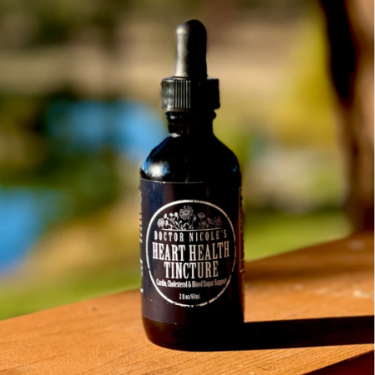
Vitamin D: Adequate vitamin D levels are important for cardiovascular health. Low levels have been linked to a higher risk of heart disease and heart failure. You can maintain healthy levels by consuming vitamin D-rich foods, taking supplements (such as vitamin D3), or spending time outdoors in sunlight.
If you’re concerned about your heart health, don’t wait until small issues become big problems. The Heart Health Blend Tincture combines four powerhouse herbs: Hawthorn to strengthen your heart and support healthy blood pressure, Tulsi (Holy Basil) to reduce stress and improve circulation, Fenugreek to help balance cholesterol and blood sugar, and Bilberry for antioxidant protection and healthier blood vessels.
This potent blend works together to support your cardiovascular system naturally and effectively, helping you take control of your heart health before problems escalate.
Make it easy to give your heart the care it needs every day.
👉 Support your heart with the Heart Health Blend Tincture now
Allergy Relief
Allergies can make you miserable, especially during pollen season. However, some allergies persist year-round and can be quite crippling for affected people. For some people, allergy medications can create a rebound effect and make the problem worse.
Here are some natural ways to manage your allergies:
#1. Avoid the allergen. This is more practical for food allergies, but many people apply it to air borne allergens also. They stay inside and use an air filter when allergens are high.
#2. Rinse the nasal passages with salt water before symptoms strike. By washing away pollen and other allergens you can reduce allergy symptoms.
#3. Exercise outdoors in the evening, when pollen counts are lower.
#4. Drink bone broth from chicken, beef, or lamb. Not only is it healthy for you, but it also helps reduce mucus in the nasal passages and reduces inflammation.
#5. Boost your immune system with apple cider vinegar. It breaks up mucus and supports the immune system.
#6. Stinging Nettle (Urtica dioica) is a powerful antihistamine. It counteracts the inflammation and allergic response.
#7. Ginger, garlic, onion, and horseradish help break down and remove toxins from the body.
#8. Cassia Cinnamon taken with Spanish needles (Bidens Pilosa) work well together to reduce allergic rhinitis and inflammation. For best results, begin taking cinnamon and Spanish needles a week or two before allergy season begins and continue taking it throughout the season.
#9. For mild allergy symptoms take cinnamon and honey to relieve itchy eyes, sneezing, and congestion.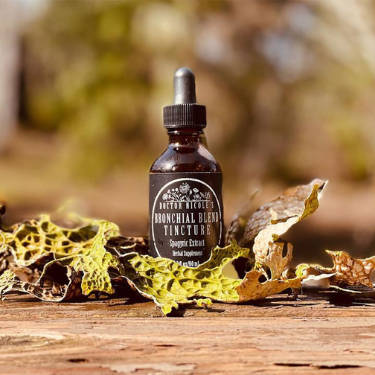
If tightness, coughing, or congestion are stealing your breath and draining your energy, the Bronchial Blend Tincture is your natural solution. Featuring Lungwort Lichen and Mullein, herbs prized for centuries for clearing and soothing the lungs, this potent tincture helps open airways, reduce inflammation, and calm persistent bronchial irritation.
Because these powerful herbs are rare and difficult to prepare properly, most people miss out on their full benefits. This blend delivers them in an easy, effective form, so you can finally experience relief and breathe deeply again.
Don’t let lung discomfort slow you down another day. Take control now.
👉 Get the Bronchial Blend Tincture and breathe freely again
Natural Support for Autoimmune Conditions
Autoimmune conditions can be challenging to manage, even with conventional treatments. While these conditions often require medical care, there are natural approaches that may help ease symptoms and support overall wellness.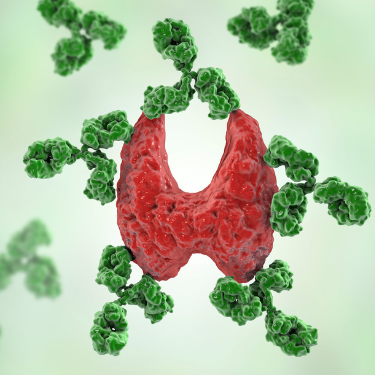
A foundation for managing autoimmune issues is adopting an anti-inflammatory diet. This means avoiding caffeine, alcohol, sugar, and dairy, while focusing on plenty of fruits, vegetables, healthy fats, and fish. Removing gluten and identifying hidden food sensitivities through an elimination diet can also be beneficial.
Supplements such as omega-3 fatty acids (fish oil), vitamins C and D, probiotics, and other anti-inflammatory nutrients may support the immune system and help reduce inflammation.
Certain herbs are also worth considering:
- Borage oil contains GLA, an omega-6 fatty acid that supports the reduction of inflammation.
- Cat’s claw is known for its anti-inflammatory properties and may help reduce pain and swelling.
- Evening primrose oil is rich in GLA, which may help ease inflammation.
- Ginger has long been valued for its anti-inflammatory effects and its protective benefits for joints and other systems.
- Green tea offers antioxidants and anti-inflammatory compounds that may reduce swelling and promote overall health.
Because autoimmune conditions vary greatly and can involve multiple issues, focusing on reducing inflammation is an important step toward managing symptoms naturally.
By stocking up now on herbs needed for these conditions, you will be ready, should one of these conditions affect a family member. An even better alternative is to plant the herbs in your medicinal garden, ready for use as needed. Don’t wait until you need these herbs, however. Most are extremely healthy for everyday use. Do your research and get ready for healthy alternatives to modern pharmaceuticals.
I am not a doctor and I do not have any medical training. I am a researcher and writer. My family members and I suffer from many of these conditions, so I have taken the time to find out which treatments work best.
However, not every case is the same and every person is different, so you should do your own research and choose the treatments that are best for you and your family.
When Pharmacies Run Dry… This Is What You’ll Wish You Had
You can swap out your food. You can choose fluoride-free toothpaste. You can try to eat organic. But as long as you’re still dependent on over-the-counter pills, creams, and prescription drugs, you’re not safe.
The truth is, every shelf in every store is loaded with chemicals. Even the ones labeled “natural.” And if we ever reach a point where the system cracks — if supply chains freeze, shelves go empty, or drug ingredients get restricted — you’ll have nothing.
That’s when this book becomes your lifeline.
The Forgotten Home Apothecary is the ultimate guide to replacing chemical-laced, pharma-dependent products with powerful, time-tested remedies you can make at home.
You’ll learn exactly how to make your own tinctures, capsules, oils, teas, salves, elixirs, syrups, and poultices from plants you can find growing around you — or already in your kitchen.
These are not “Pinterest cures” or folk tales. These are battle-tested remedies used by herbalists, survivalists, and those who want real protection when nothing else is available.
Inside, you’ll discover powerful remedies like:
 Memory Elixir – made with rosemary to help restore clarity, focus, and short-term memory
Memory Elixir – made with rosemary to help restore clarity, focus, and short-term memory
 Painkiller in a Jar – crafted from wild lettuce, known as “nature’s opium” but legal, safe, and non-addictive
Painkiller in a Jar – crafted from wild lettuce, known as “nature’s opium” but legal, safe, and non-addictive
 Nature’s Amoxicillin – a plant-based antibacterial formula to help fight infections and boost immunity
Nature’s Amoxicillin – a plant-based antibacterial formula to help fight infections and boost immunity
 Medicinal Herbal Smoking Blend – designed to clear lungs and soothe inflammation with mullein and other wild herbs
Medicinal Herbal Smoking Blend – designed to clear lungs and soothe inflammation with mullein and other wild herbs
 Heavy Metal Detoxifier – flushes out mercury, aluminum, and lead from your bloodstream using safe, herbal chelators
Heavy Metal Detoxifier – flushes out mercury, aluminum, and lead from your bloodstream using safe, herbal chelators
 Herbal Parasite Flush – a powerful three-ingredient recipe to eliminate worms and cleanse your gut
Herbal Parasite Flush – a powerful three-ingredient recipe to eliminate worms and cleanse your gut
 The Backyard Aspirin – learn to use willow bark like early apothecaries did — it works like real aspirin, without the synthetic junk.
The Backyard Aspirin – learn to use willow bark like early apothecaries did — it works like real aspirin, without the synthetic junk.
And that’s just the beginning.
This book may be the only thing standing between you and full pharmaceutical dependence in a time of crisis.
 Click here to get The Forgotten Home Apothecary before it’s gone. Limited edition. Real remedies. No chemicals.
Click here to get The Forgotten Home Apothecary before it’s gone. Limited edition. Real remedies. No chemicals.
How to Manage Serious Wounds With Household Items
The Most Powerful 40 Remedies You Can Find in The Wild (Video)
Secret Amish Medical Care Hacks They Don’t Want You to Know
How To Make Backyard Penicillin
Fermented Foods for Gut Health: A Guide to Building Immunity and Self-Sufficiency


